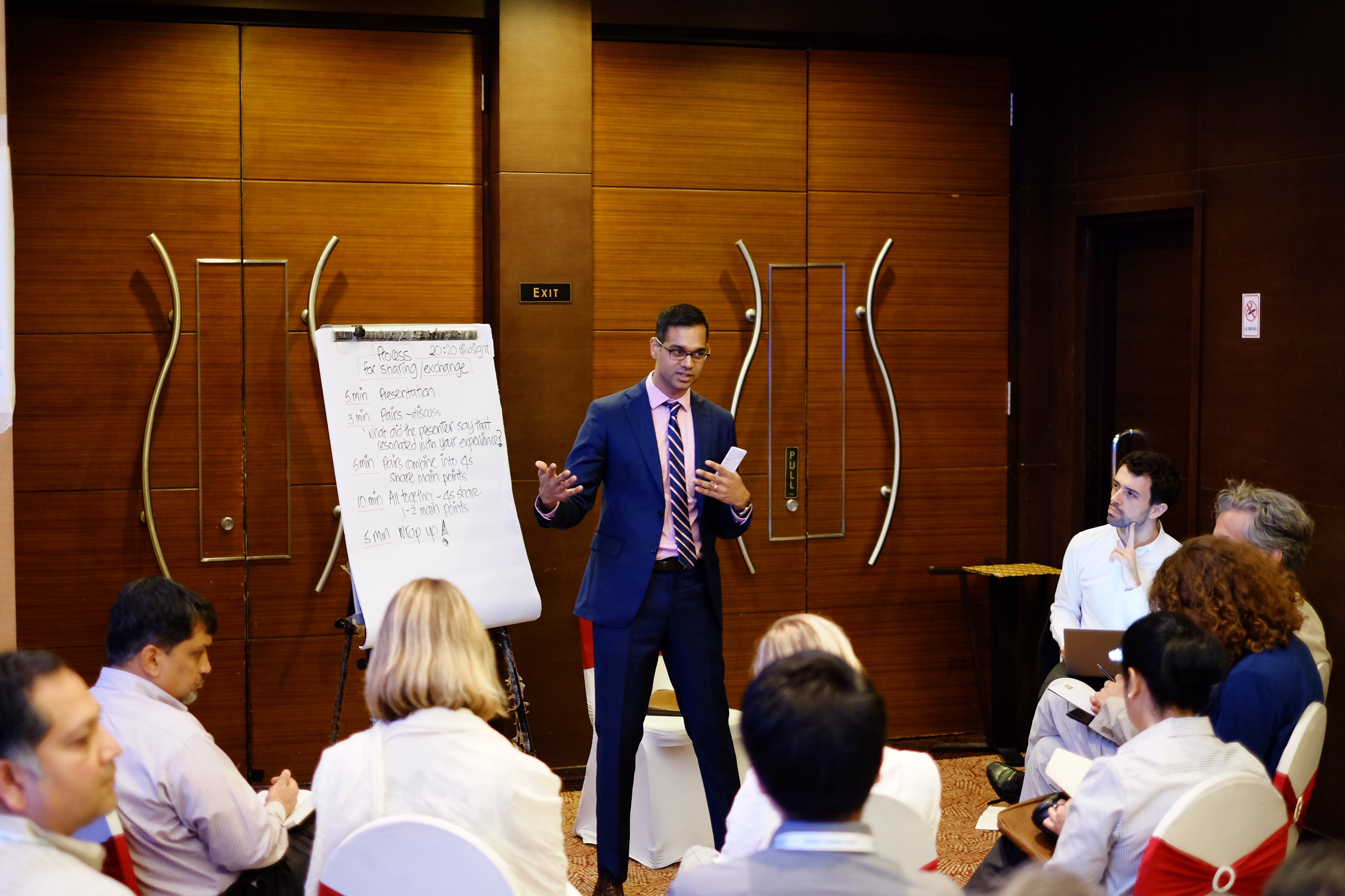The 20/20 Hindsights session brought groups together to brainstorm and articulate new solutions in relation to six specific UCCR challenges. Participants were able to pick two themes to participate in.
During the “Accessing Finance” sessions Sasank Vemuri led a rich debate that was initiated when he shared his insights into how UCCCR approaches might access larger financing pools, enabling greater impact and scale. Various participants highlighted their interest in the sectoral clustering of projects on the national scale. This might enable sanitation or housing loans to mainstream UCCCR approaches. The strengthening of national and local governments to access financing was mentioned by many of the participants. Some participants shared their skepticism about the ability of cities to undertake complex funding proposals whereas another solution that was suggested was for national governments to provide sovereign guarantees for city-level loans.
On the theme of “Data, Information and Knowledge” discussions centered around the need to make data, information and knowledge about resilience more understandable. This was identified by participants as being particularly needed at the beginning of resilience building process. In addition, it should be complemented with data that is in the right format, the right ways and the right platforms for delivering such an understanding. Tailor-made data, information and knowledge that meets the needs of specific target audiences is also important. For example, local administrators and villages require different sets of information in order to recognize the importance of it and then they can develop a better understanding when participating in the same platform.
In another corner, where discussion on “Engaging Stakeholders” was taking place, Aniessa Delima Sari shared with the group the importance of obtaining buy-in from key stakeholders when it comes to addressing urban climate change challenges. She emphasized that certain influential stakeholder groups can help generate such buy-in. For example, environment agencies can reach out to other groups as they are well-recognized for their work on climate change. The media can also be an ambassador to further attract interests of key players to get involved
In “Designing Resilience Projects and Action”, Tran Van Giai Phong led discussions that stressed the importance of building understanding of target stakeholders and getting them fully engaged during the course of the project. He shared that during project implementation there is a need to understand gaps in the system, and for stakeholders to be prepared to deal with challenges that usually erupt when a project gets going.
Lisa Buggy from COHED, Viet Nam led a session on “Advocating and Implementing Policy”. Policy advocacy was seen as crucial because it could bring about more sustainable outcomes. Buggy highlighted that there is a need to highlight the blind spots in policy at the beginning. When it comes to advocacy, the national media can help raise national awareness. At the same time, research also plays a key role as it helps provide information as evidence that can be used to convince policymakers. Overall the group agreed that dialogue must be carried out with different layers of policymakers in an adapted way.
In another session, entitled “From city to global, communicating resilience and building interest” led by Carey Meyers of The Rockefeller Foundation, the group identified language barriers as a critical challenge because diverse stakeholders usually communicate in different languages, and resilience means different things in each tongue. They also learned that adjusting to fit the local context helps ensure targeted communications approaches. Other key take-aways from discussions included the necessity for using a diverse variety of media types, and to apply marketing approaches more effectively. session brought groups together to brainstorm and articulate new solutions in relation to six specific UCCR challenges. Participants were able to pick two themes to participate in.









